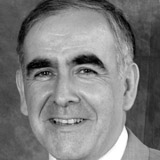 Gothenburg is a handsome city with imposing stone and brick buildings, simultaneously sober and ornamented, set among green hills falling to not one but two archipelagos.
Gothenburg is a handsome city with imposing stone and brick buildings, simultaneously sober and ornamented, set among green hills falling to not one but two archipelagos.
It was particularly striking during the unseasonably fine weather that greeted the 22nd Nordic Gerontology Congress last week. This leading regional gerontology conference in Europe is biannual, broad in perspective, and meticulously organised.
Over 1100 delegates, mostly Nordic, attended this showcase for the remarkable progress that these countries have made in fostering research and education into ageing—including sociology, psychology, and the clinical sciences. Active PhD programmes are allied with a level of inter-institutional cooperation that few other regions of Europe match. For example, 11 universities in Sweden have developed the Swedish National Graduate School on Ageing and Health—a lead that many other European countries could do well to follow.
From a health perspective, there was much food for thought. A session on managing the complex care of older people in the region showed interesting trends towards better targeting and provision of care in the community. The trend is clearly towards increased hospital admissions with shorter stays, which is a reflection of both increasing need and more tailored responses.
Challenges also arise from the tension between national programmes and increasingly decentralised care in counties and municipalities in the Nordic countries.
A marker of the sophistication of Nordic care was a prominent focus on oral care for older people—a critically important but often neglected aspect of care, particularly in hospitals and nursing homes.
The depth, intensity, and professionalism of the research programmes was clear from an excellent symposium teasing out the determinants of transportation and mobility in later life by a group from Jyväskylä in Finland. It is clear that both personal autonomy and physical fitness have important links with transport and mobility in later life.
No aspect of ageing was excluded, with a crowded hall engaging with an inspiring symposium on narrative gerontology in research and practice, neatly catching both methodology and emerging research.
The individual papers covered even more ground, from forgiveness (improves emotional wellbeing), pets, male engagement (involvement with home tasks, but not childcare, is associated with caring for parents), ageing in Sami culture, sexuality in the over 90s, to a wonderful presentation on obesity and ageing.
Perhaps the most important signal from the conference was of a region of Europe where the complexity of ageing is embraced, not only by academia, but also by civic society. Older people, particularly when ill or disabled, are not just another group of adults: effective care needs to be informed by the science of gerontology.
This hit home for me, given my experience of investigating the first major nursing home scandal in Ireland in 2006. I could find no documentary evidence at the time, among any sector in the Irish Department of Health, health services, or professions (apart from the geriatricians), of awareness of the need to infuse the care of older people in nursing homes with gerontological knowledge and training.
Even three years after the report on the nursing home scandal, the Irish Nursing and Midwifery Board released recommendations on nursing older people, without a single mention of gerontological or specialist nursing. This lapse was especially unhappy as the corresponding UK body had released a report two months earlier, which formally recognised that nursing older people is a specialism requiring highly skilled nurses, who can deal with the complexity of health and social care needs that older people can present with.
One of the key recommendations of the Irish nursing home inquiry was that staff in nursing homes should have gerontological expertise—in particular, a diploma in gerontological nursing or equivalent for directors of nursing—in all long term care facilities. It is therefore distressing that the revised nursing home regulations from the Irish Department of Health, due to be implemented on 1 July this year, make no mention of any such requirement, or even of experience in a specialist unit. Despite there being much detail on other aspects of operating nursing homes, all that is stipulated is “at least three years’ experience of nursing older persons within the previous six years.” As older people form a majority of adult patients in many services, this is quite meaningless in terms of gerontological expertise.
As I pondered on these grave omissions in the Irish context, I reflected on the few hours I stole from the congress in the impressive Gothenburg Museum of Art. The most striking feature was the particular quality of light in Nordic art, marked by cleanliness and clarity, a quality that resonated with the perspectives granted by the Nordic Gerontology Congress. Those concerned in providing the care of older people in other parts of Europe could benefit from a healthy dose of illumination from these Northern lights.
Desmond (Des) O’Neill is a consultant physician in geriatric and stroke medicine and local chair of the IAGG-ER Congress.
